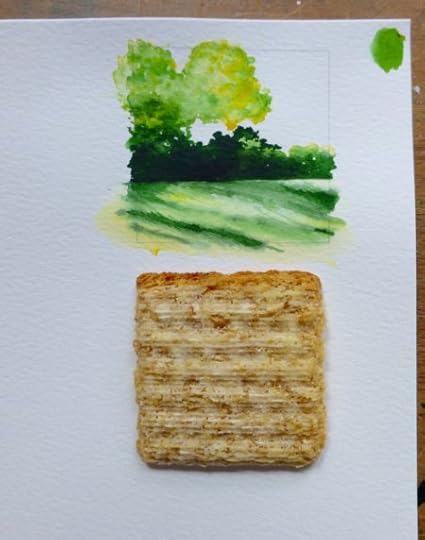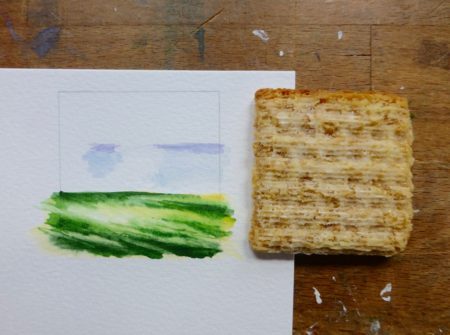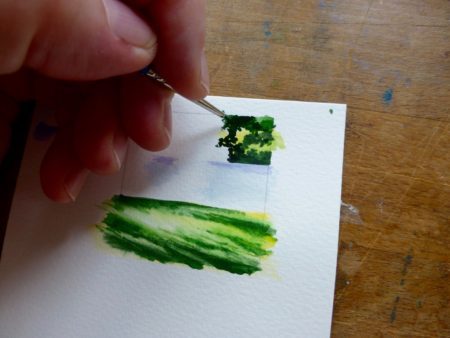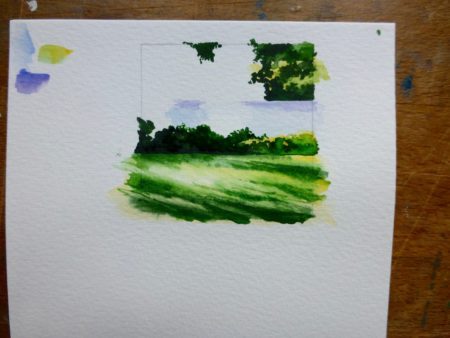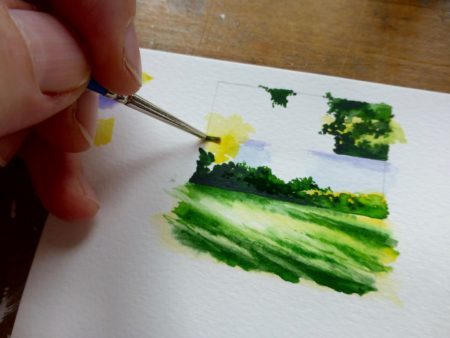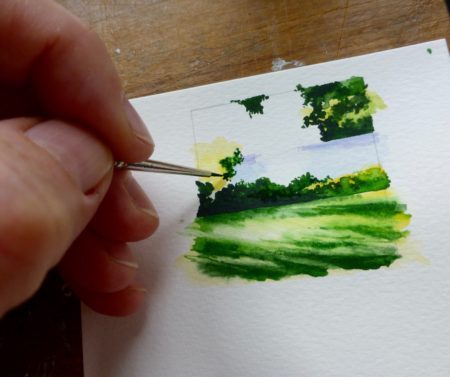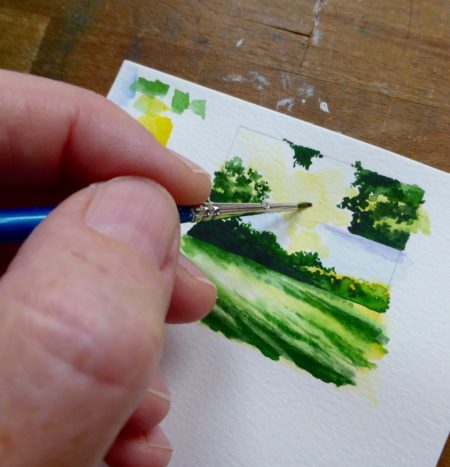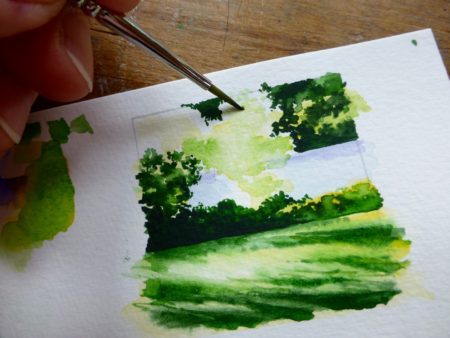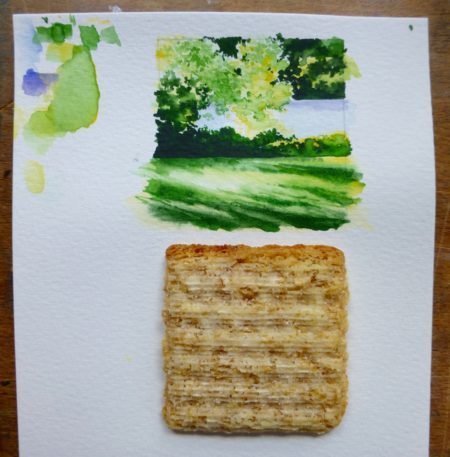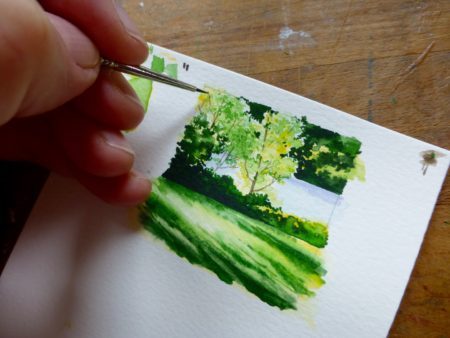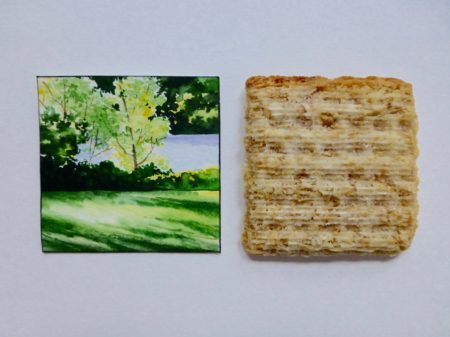How To Not Be A Jerk
I’ve been meaning to give author R. L. Stein a piece of my mind for some time now, but world events and The Real Housewives of Orange County (please, Bravo, please fire Vicki) ate into my stockpile of ire. But it’s been almost a year since I was deeply offended by R. L. Stine and so, today I’m in the mood to discuss R. L. Stine’s interview with The New York Times Book Review of August 23, 2015.
You’re hosting a literary dinner party, the Times posits; Which three writers are invited?
R. L. Stine (who I never heard of but turns out he writes very popular children’s horror books) answers: Charles Dickens, Anthony Trollope, and Jane Austen.
So far, so good. But then he goes on:
And I would ask them all my all-time least-favorite question: “Where do you get your ideas?”
It’s that last bit, the part about how annoying it is for R. L. Stine, famous author, to be asked: Where do you get your ideas? that chaps my butt. Which I will discuss while I show you how I painted my latest Triscuit (since my anti-R. L. Stine tirade has no visual component):
I just love the way a Summer lawn looks when it is shadowed by sunlight flickering through leafy tree branches. Is there a word for that? There should be a word for that, and that is what I tried to paint in my latest Triscuit, which I painted this far (see below) before I had to throw it out and start all over because of those two mushy lumps of greenish yellow in the upper left quadrant, which are very ugly:
So I start over:
Back to R. L. Stine: Well, excuuuuuse me, R. L. Stine, and other writer-snobs of your ilk who I have heard and read deploring the same query posed by the un-writerly otherwise known as reader-type persons, if you find it sooooooo annoying to be asked how/where/when or why you were inspired to write what you wrote.
Albert Einstein, who by the way got a lot of far more important ideas than any freaking Goosebumps plot (by R. L. Stine), and he gladly answered the question re: How did yogurt that idea for general relativity? by describing the moment as “the happiest thought of my life“, when this idea popped into his head: To a man falling freely in a gravitational field, that gravity does not exist. And from there, a lot of important mathematics and an total upheaval of the Newtonian Universe ensued.
The only physicist since Einstein’s death to rival Einstein for brilliance, Richard Feynman, wrote about how he was sitting in a college cafeteria watching an underclassman throw a plate across the room (?), and realized that the center of that plate wobbled at a different rate than the edge of that plate and that there was no equation that explained the rate of spin, so he worked it out, just out of curiosity, and next thing you know he’s figured out quarks, and time travel, or some other such momentous usefulness that I can’t quite remember (but that’s a true story about the plate).
Virginia Woolfe wrote, in her diary of 1918, about a time when she was sitting in a field and saw “a red hare loping up the side & thinking suddenly “This is Earth Life”. I seemed to see how earthy it all was, & I myself [just] an evolved kind of hare; as if a moon-visitor saw me.” Next thing you know, Virginia Woolf is writing other-worldly stream-of-consciousness novels about the Earth life of characters such as Mrs. Dalloway and Orlando.
And R. L. Stine feels put out because someone wants to know where he got the idea for his character Slappy the Dummy???
R. L. Stein, I have just the T-shirt for you:
Ideas are wondrous gifts from the Universe! Ideas are what keeps us from being bored to death! Ideas can end up as anything from the double helix of DNA to croissants! And I LOVE croissants!!
So I think it is extremely shitty that R. L. Stine, or anyone who elaborates upon his or her unique ideas for a living (whether in words, numerals, chromosomes, or pastry dough) would find it tedious to explain the wherefore-art-thous of those ideas. Because maybe the people who ask that question, Where do you get your ideas?, are people who need to be inspired by the mysterious way that an idea, of, say, a red hare or a spinning plate lobbed by a college kid, becomes a novel or a Nobel Prize.
Or, maybe, that person is like me, and hasn’t come across a good idea in a long while and is looking for a hint as to where to look.
I got my idea for this Triscuit from walking past the local duck pond here in Roslyn village, on the Long Island of New York state (America) on a beautiful June afternoon.
I got the idea for my first book, When Wanderers Cease to Roam, from a 1939 Popular Science Encyclopedia article about electrons, titled When Wanderers Cease to Rove. As soon as I read those words — BOOM. I had a fabulous title and the raison d’être of my quasi-travel life story. Buying that dusty encyclopedia set for $10 at a Salvation Army Thrift Shop in central Pennsylvania 20 years ago and waiting 8 years to open volume 5 to that page with “Rove” printed on it remains one of my Top Ten Happiest Thoughts in my life.
My second book, Le Road Trip, wasn’t much of a hot idea — doesn’t everybody who goes to France want to make an illustrated travel memoir out of the trip? — but the idea for breaking the trip down into chapters that tracked the stages of a love affair came from a Wallace Stevens poem called Thirteen Ways of Looking at a Blackbird. I made every chapter of that book a different way of looking at France, one as a straight, linear story; one as a Day in the Life; one as a Top Ten list; one as an A to Z inventory; etc.
I regret not thinking of a better title than Le Road Trip, though — turns out that a lot of English-speakers are troubled by the “Le“. True story.
I felt compelled to write Gardens of Awe and Folly when I was looking through the huge Garden section of my local library couldn’t find not one book about garden travel at all, and none about gardens that I wanted to read. Why did every garden book have to be a How To, and a lot of that about How To determine your dirt’s personality?
So, if I had to invent an entire new genre of garden writing to produce a garden book that I could stand to read, then so be it. And voila: Gardens of Awe and Folly.
I didn’t have a title for the book until the week before it had to go to press. All I knew was that I had to have the word Garden in it, but nothing during the three years that I worked on it had appeared in a vision, not even when I went back to the Popular Science Encyclopedia and browsed all 10 volumes.
So, with time running out, I sat myself down and just began to make a list of all the words that related to the gardens in the book. And then the phrase Garden of Earthly Delights chimed in my head, and I knew that it had the perfect syllable count for a great title, but I had to substitute words for Earthly Delights (too cliche) and so, from sheer doggedness, I finally got to Awe and Folly.
I have to admit that I haven’t had a good idea since I worked that title out. And I am desperate for a good idea. I need a project.
So . . . where do your ideas come from?
If you’ve ever had a nifty brainwave from the Universe, or you know of a good story about where an idea came from, or you ave an idea that you wish someone would execute for you, please Comment. (It’s a tiny bit awkward to do that on this template: you have to click onto the READ MORE button at the bottom of this post.) If your idea or idea story triggers some scathingly brilliant notion for my next book, I WILL DEDICATE THAT BOOK TO YOU. I’m talking full page, front-of-the-book acknowledgement. Illustrated.
I await your many wobbly ways of looking at Earth Life.
XXOO


